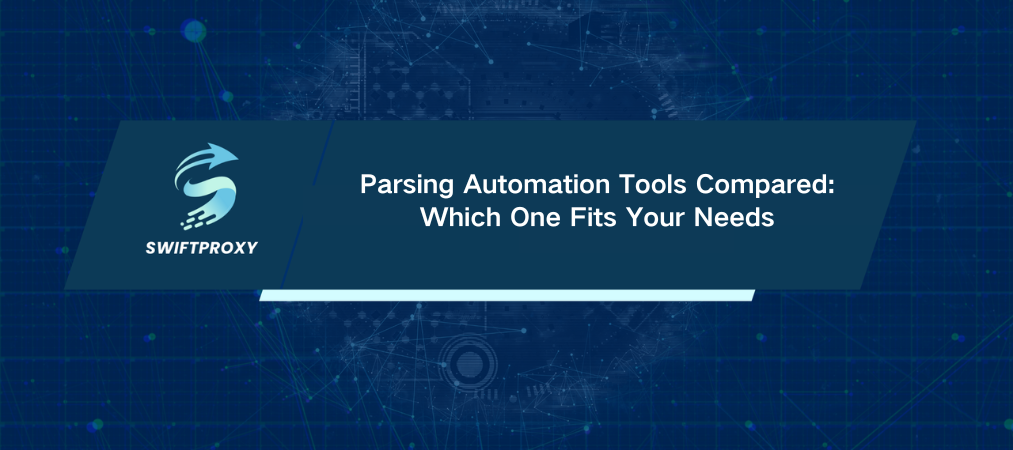Parsing Automation Tools Compared: Which One Fits Your Needs

Data drives decisions. In today's world, the right information can make or break your strategy. But collecting that data? That's where the real challenge lies. Parsing automation tools promise to make it painless. But which one will get the job done—fast, clean, and hassle-free?
Choosing a parser isn't about picking "free" or "paid." It's about matching the tool to your exact need. From grabbing competitor prices to bypassing complex anti-bot shields, the stakes vary—and so should your approach.
What You Need to Understand Before You Choose
What data do you need?
Simple product descriptions or thousands of pages crawling at breakneck speed? Your parser has to fit the volume and complexity of your goal.
What obstacles are in the way?
Many websites don't want to be scraped. Captchas, IP request limits, behavioral tracking—each adds a layer of complexity. The tougher the defense, the smarter your tool needs to be.
What resources do you have?
Time? Budget? Technical skill? Off-the-shelf tools save time but cost money. Custom scripts take longer but can be tailored perfectly.
Real-World Example of Airline Ticket Prices
Option one: a basic script opens every page manually and grabs data. Slow. Fragile. One IP limit and you're blocked.
Option two: a robust service with IP rotation and captcha handling. What takes days, now takes hours. No sweat. That's the power of the right tool.
The Three Categories of Parsing Tools
1. Ready-Made Services
Cloud platforms like ScraperAPI or Apify do the heavy lifting for you. Enter URLs, set parameters, and watch the data flow.
Pros:
No coding needed
Built-in captcha solving and IP rotation
Direct export to CSV, JSON, or databases
Cons:
Can be pricey at scale ($50–$200 for 10,000 pages)
Reliant on the service's uptime and infrastructure
Best for:
Small to medium businesses monitoring competitor prices or market trends without a dedicated dev team.
2. Programming Libraries
Tools like BeautifulSoup, Selenium, and Puppeteer give developers full control to build custom parsers.
Pros:
Total flexibility for any website
Handle JavaScript-heavy sites and API calls
Free and open-source
Cons:
Requires programming skills
Setup and debugging can take hours or days
Best for:
Technical teams building custom solutions for ongoing, complex data needs.
3. Visual Parsing Builders
Drag-and-drop interfaces like Octoparse and ParseHub are made for non-coders.
Pros:
Easy setup with no programming
Supports dynamic sites
Visual confirmation of what's being scraped
Cons:
Limited in handling very complex tasks
Free plans usually restrict data volume
Best for:
Marketers and analysts needing quick data pulls without writing code.
How to Pick the Perfect Tool for Your Project
Small, straightforward tasks? Use BeautifulSoup. A lightweight 20-line script can extract static data fast and clean.
Websites with simple anti-bot defenses? Combine Selenium with proxy rotation to mimic real user actions and avoid IP bans.
Dynamic sites with heavy protection? Go for Puppeteer paired with mobile proxies. It handles JavaScript rendering and sophisticated anti-bot systems seamlessly.
Massive scale scraping? Opt for robust ready-made platforms like ScraperAPI. Their infrastructure is built for volume, speed, and complex defenses.
Wrapping It Up
Parsing is simple in theory: pull data, fill your tables. In practice? The right tool changes everything. Match your task, obstacles, and resources carefully. Don't just scrape—scrape smart.

















































